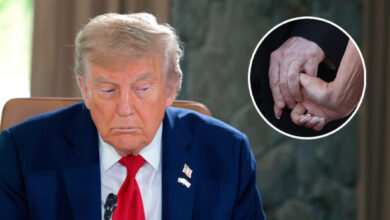Story
How a Work Tracking Tool Helped Me Grow in My Remote Job

When my boss asked for my laptop to install a tool that would track my working hours, I couldn’t believe it. “I don’t need a digital babysitter,” I said half-jokingly, though my frustration was real. “Remote work runs on trust, not control.” He smiled politely and said it was company policy.
The next day, HR sent a formal email requiring everyone to install the new software. I sighed, installed it, and even thanked them with a smile that didn’t quite reach my eyes. At first, I saw it as an invasion — a quiet statement that my effort wasn’t trusted anymore. But over time, something shifted.
The software tracked everything: time spent on tasks, idle moments, even app usage. Every few minutes, a tiny reminder popped up, letting me know I was being watched. It made me uneasy at first. I caught myself hesitating before opening a new tab, double-checking that I wasn’t wasting a second. The pressure was constant, and I hated how it made me second-guess myself.
But after a week of feeling trapped, I decided to change how I saw it. If I couldn’t remove the tracking tool, maybe I could use it differently — not as a symbol of control, but as a reminder to stay organized and intentional.
I began planning my days more carefully. Each morning, I made a list of tasks ranked by priority and gave myself realistic time frames to complete them. I tracked my progress in a personal journal, not just to meet the software’s expectations but to measure my own growth. Slowly, my focus improved.
Instead of reacting with resentment, I leaned into structure. I stopped multitasking, started blocking time for deep work, and took breaks more consciously. Ironically, the very thing that felt restrictive started helping me find clarity. I wasn’t working for the tracker — I was working for myself, proving that discipline could turn any situation into a learning opportunity.
My reports became cleaner. My communication with the team improved. I started submitting projects earlier, anticipating feedback, and showing initiative in meetings. Soon, the numbers in the software — the hours logged, the active time — began to reflect something more meaningful: consistency.
After a month, my boss called me into a virtual meeting. I expected another conversation about productivity, but instead, he said, “I’ve noticed your performance has been great lately. You seem more organized, more in control of your schedule. Whatever you’re doing, keep it up.”
That simple acknowledgment made me realize something profound — the tracking tool hadn’t changed how much I worked, but it had changed how I worked. I wasn’t just managing time anymore; I was managing focus.
Over time, my frustration disappeared. The software was still there, silently running in the background, but it no longer bothered me. It became irrelevant — not because I ignored it, but because I had grown beyond needing to prove myself through numbers. My results, reliability, and communication spoke for themselves.
The irony wasn’t lost on me. What began as a symbol of mistrust ended up teaching me self-accountability and resilience. My boss, who once felt the need to monitor, began giving me more freedom. “You don’t seem to need as much oversight,” he said one afternoon. That trust — the very thing I thought I’d lost — had quietly been rebuilt, one task at a time.
Now, when I see that small icon in the corner of my screen, it doesn’t make me uncomfortable anymore. It reminds me of growth — of how challenges can push us to evolve if we let them. I learned that trust is important, but so is discipline. Remote work may depend on mutual respect, but true independence comes from consistency and integrity, even when no one is watching.
Sometimes, life tests you in ways that feel unfair or unnecessary. It puts obstacles in your path that seem designed to hold you back. But often, those obstacles are opportunities in disguise — moments that reveal who you are when things don’t go your way.
That tracking tool started as something I despised, but it became a quiet teacher. It showed me that control doesn’t have to limit you; it can refine you.
Now, I close my laptop at the end of each day with a calm sense of accomplishment. I no longer feel monitored — I feel measured by my own standards. And that, I’ve realized, is the best kind of freedom.
Disclaimer: All stories published on this website are for entertainment and storytelling purposes only. They do not have an identified author and are not claimed to be based on real events or people. Any resemblance to actual persons or events is purely coincidental.



